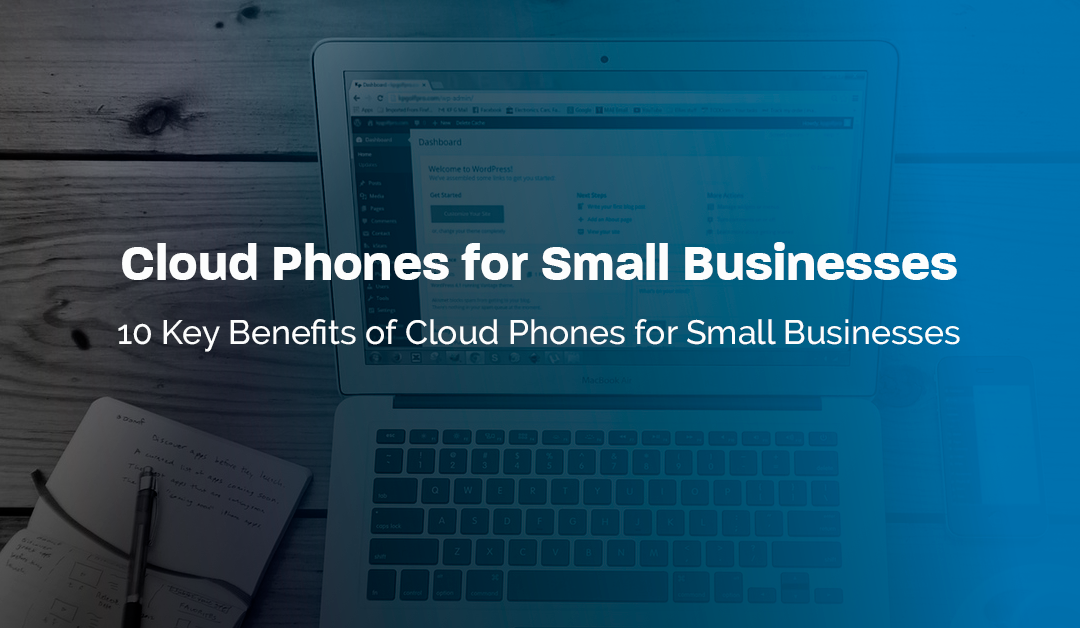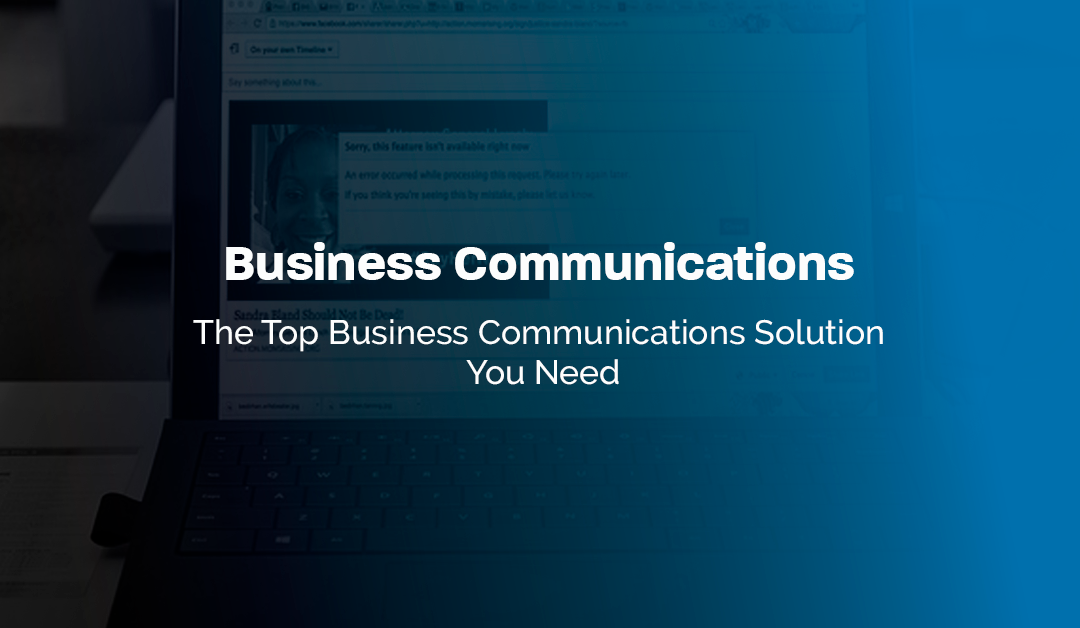Welcome to the ultimate guide on choosing the best Internet service for your small business! In today’s fast-paced digital world, having a reliable and high-speed Internet connection is crucial for the success of any business. Whether you’re starting a new venture or looking to upgrade your current Internet setup, making the right choice can boost productivity, enhance customer experience, and stay ahead of the competition. But with so many options available, how do you know which Internet service provider (ISP) best fits your small business? In this comprehensive guide, we’ll walk you through the key factors to consider, such as speed, reliability, pricing, and customer support, to help you make an informed decision. From Fiber optic to cable, DSL, and satellite, we’ll explore the pros and cons of each type of connection, as well as the specific needs and considerations for different industries. So let’s dive in and find the perfect Internet service to propel your small business to heights!
The Importance of a Reliable Internet Service for Small Businesses
In today’s interconnected world, reliable Internet service is no longer a luxury but a necessity for small businesses. A fast and stable Internet connection is essential for various critical business operations, such as communication, data transfer, online transactions, cloud-based services, and customer support. Without a reliable Internet service, businesses may experience frequent disruptions, slow loading times, and limited access to online resources, all of which can have a significant impact on productivity and customer satisfaction.
To understand the importance of a reliable Internet service, let’s consider a few scenarios. Imagine a small restaurant business that heavily relies on online orders. If their Internet connection is slow or unreliable, it could lead to frustrated customers, abandoned orders, and ultimately, lost revenue. Similarly, a remote team working on a collaborative project may find their efficiency hampered if they constantly experience lag or connectivity issues. In today’s competitive landscape, where speed and efficiency are paramount, having a reliable Internet service can give your small business a significant advantage.
When choosing an Internet service for your small business, it’s crucial to consider factors such as speed, reliability, scalability, and security. Let’s explore the different types of Internet connections available for small businesses and the pros and cons of each.
Types of Internet Connections for Small Businesses
Fiber Optic Internet
Fiber optic Internet is considered the gold standard when it comes to Internet connections. It uses thin strands of glass or plastic to transmit data through pulses of light, resulting in incredibly fast and reliable speeds. Fiber optic Internet offers symmetrical upload and download speeds, making it ideal for businesses that require large file transfers or real-time collaboration.
One of the primary advantages of Fiber optic Internet is its ability to handle high bandwidth demands. This makes it an excellent choice for businesses that heavily rely on cloud-based services, video conferencing, and data-intensive applications. Another benefit is its low latency, which ensures minimal delays and lag, especially during online meetings or video streaming.
However, Fiber optic Internet may not be available in all areas, especially in rural or remote locations. Additionally, the installation and maintenance costs can be higher compared to other types of Internet connections. Despite these considerations, if your small business requires fast and reliable Internet access, Fiber optic Internet should be at the top of your list.
Cable Internet
Cable Internet utilizes the same infrastructure as cable television to provide Internet access. It offers high-speed Internet connectivity through coaxial cables, which can deliver faster speeds compared to traditional DSL connections. Cable Internet is widely available in urban areas and offers a good balance between speed and cost.
One of the main advantages of cable Internet is its affordability. It is often more cost-effective than Fiber optic Internet, making it a popular choice for small businesses on a budget. Cable Internet also provides a stable and consistent connection, allowing for smooth browsing, online transactions, and basic cloud-based applications.
However, cable Internet is a shared connection, meaning that the bandwidth is divided among multiple users in the same area. This can result in slower speeds during peak usage hours when many users are online simultaneously. Additionally, the upload speeds of cable Internet are typically slower compared to Fiber optic connections. If your small business relies heavily on uploading large files or regularly conducts video conferences, cable Internet may not be the best choice.
DSL Internet
DSL (Digital Subscriber Line) Internet uses traditional copper telephone lines to provide Internet access. It offers a reliable and affordable option for small businesses, especially those located in areas where Fiber optic or cable Internet is not available. DSL Internet is widely accessible, making it a viable choice for businesses in both urban and rural areas.
One of the main advantages of DSL Internet is its affordability. It is generally cheaper than Fiber optic or cable Internet, making it an attractive option for small businesses with tight budgets. However, DSL Internet speeds can vary depending on the distance between your business and the nearest telephone exchange. The farther you are from the exchange, the slower your connection may be. Additionally, DSL upload speeds are typically slower compared to Fiber optic or cable Internet. If your small business relies on uploading large files or regularly conducts video conferences, DSL Internet may not be the best choice.
Satellite Internet
Satellite Internet provides Internet access through satellites orbiting the Earth. It is primarily used in rural or remote areas where other types of Internet connections are not available. Satellite Internet offers wide coverage and can reach locations that are not easily accessible by Fiber optic, cable, or DSL connections.
One of the main advantages of satellite Internet is its availability. It can provide Internet access to businesses located in remote areas where other options are limited. Satellite Internet also offers relatively fast download speeds, making it suitable for basic web browsing and email communication.
However, satellite Internet has certain limitations that may not make it an ideal choice for all small businesses. One of the main drawbacks is the high latency, which can result in noticeable delays during online activities such as video conferencing or real-time collaboration. Additionally, satellite Internet plans often come with data caps and fair usage policies, which can restrict usage and result in additional charges if exceeded.

Factors to Consider When Choosing an Internet Service Provider
Now that we have explored the different types of Internet connections available for small businesses, let’s delve into the key factors to consider when selecting an Internet service provider (ISP). Choosing the right ISP is just as important as choosing the right type of Internet connection, as it will determine the quality of service, customer support, and overall experience you receive.
1. Speed
The speed of your Internet connection is crucial for the smooth operation of your small business. It affects everything from web browsing and file downloads to video conferencing and cloud-based applications. When evaluating the speed offered by different ISPs, pay attention to both the download and upload speeds. Upload speed is particularly important if your business relies on regularly transferring large files or conducting video conferences.
2. Reliability
A reliable Internet connection is essential for uninterrupted business operations. Look for ISPs with a reputation for offering reliable service, minimal downtime, and quick issue resolution. Check if the ISP has a service level agreement (SLA) that guarantees a certain level of uptime and response time for technical support.
3. Pricing
Consider your budget and the cost-effectiveness of the Internet service plans offered by different ISPs. Compare the prices, contract terms, and any additional fees or hidden costs. Be cautious of promotional rates that may increase after an initial period. Remember that the cheapest option may not always be the best in terms of speed, reliability, or customer support.
4. Customer Support
Prompt and efficient customer support is crucial, especially when technical issues arise. Look for ISPs with a reputation for excellent customer service and 24/7 support availability. Read reviews and ask for recommendations from other small business owners to gauge the quality of customer support provided by different ISPs.
5. Scalability
Consider the future growth and scalability of your small business. Will the chosen ISP be able to accommodate your increasing bandwidth demands as your business expands? It’s important to choose an ISP that offers flexible plans and the ability to upgrade or downgrade your service as needed.
6. Security
Ensure that the ISP prioritizes the security of your data and provides measures to protect your business from cyber threats. Look for ISPs that offer features such as firewalls, encryption, and virtual private networks (VPNs) to safeguard your sensitive information.
By considering these factors and assessing the specific needs of your small business, you can make an informed decision when choosing an Internet service provider. In the next section, we’ll explore how to assess your small business’s Internet needs and determine the appropriate speed and bandwidth requirements.
Assessing Your Small Business’s Internet Needs
Before selecting an Internet service provider, it’s essential to assess your small business’s Internet needs to ensure you choose a plan that meets your requirements. Here are some key considerations to keep in mind:
Number of Employees and Devices
Take into account the number of employees and devices that will be connected to the Internet simultaneously. Each device, such as computers, laptops, smartphones, tablets, printers, and IoT devices, consumes bandwidth. Ensure that the chosen Internet plan can accommodate the number of devices in your business without experiencing significant slowdowns.
Internet Usage Patterns
Consider the type of online activities your small business engages in. Do you mainly use the Internet for basic web browsing and email communication, or do you rely heavily on data-intensive applications, video conferencing, or cloud-based services? Identifying your Internet usage patterns will help determine the required speed and bandwidth.
Future Growth
Consider the future growth and expansion plans of your small business. Will your Internet needs increase as you hire more employees, open additional locations, or launch new online services? Choosing an ISP that can scale with your business will prevent the need for frequent changes or interruptions in service.
Specific Industry Requirements
Certain industries may have specific Internet requirements due to the nature of their operations. For example, a graphic design agency may require faster upload speeds to transfer large files, while a call center may prioritize low latency for seamless voice communication. Identify any industry-specific Internet needs and ensure that the chosen ISP can meet them.
By thoroughly assessing your small business’s Internet needs, you can narrow down the options and select an Internet service and provider that aligns with your requirements. In the next section, we’ll compare different Internet service providers to help you make an informed decision.

Comparing Internet Service Providers
When comparing Internet service providers (ISPs), it’s essential to evaluate their offerings based on your small business’s specific needs. Here are some factors to consider when comparing ISPs:
1. Speed and Bandwidth Options
Compare the speed and bandwidth options offered by different ISPs. Look for plans that meet your specific requirements, considering the number of employees, devices, and Internet usage patterns in your small business. Remember that higher speeds and larger bandwidths often come at a higher cost, so find the balance that suits your needs and budget.
2. Service Reliability and Uptime
Check the reliability and uptime guarantees provided by ISPs. Look for ISPs with a proven track record of minimal downtime and quick issue resolution. Consider the service level agreement (SLA) offered by each ISP, which outlines the uptime percentage and response time for technical support.
3. Customer Reviews and Reputation
Read customer reviews and testimonials to gauge the quality of service provided by different ISPs. Look for positive feedback regarding reliability, speed, customer support, and overall satisfaction. Pay attention to any recurring issues or complaints that may affect your small business’s experience.
4. Additional Services and Features
Consider any additional services or features offered by ISPs that may be beneficial to your small business. For example, some ISPs may provide Cloud Phone Service, Video Conferencing, Cabling services and email. Evaluate the value and relevance of these additional services when comparing ISPs.
5. Pricing and Contract Terms
Compare the pricing of different ISPs, taking into account the speed, bandwidth, and additional services included in each plan. Be aware of any promotional rates that may increase after an initial period. Carefully review the contract terms, including any early termination fees or restrictions.
By comparing ISPs based on these factors, you can narrow down your options and select the one that best meets your small business’s requirements. In the next section, we’ll explore the important aspects of Internet service contract terms and fees to be aware of before making a commitment.
Understanding Internet Service Contract Terms and Fees
Before finalizing your selection and signing a contract with an Internet service provider (ISP), it’s crucial to understand the terms and fees associated with the service. Here are some important aspects to consider:
1. Contract Length
Check the length of the contract offered by the ISP. Contracts typically range from 1 to 3 years. Consider the flexibility of the contract term and whether it aligns with your small business’s needs. Keep in mind that longer contracts may offer better pricing or incentives but may also come with stricter termination policies.
2. Early Termination Fees
Review the early termination fees outlined in the contract. These fees are charged if you decide to cancel the service before the contract term ends. Understand the financial implications of early termination and consider the level of commitment you are comfortable with when choosing a contract length.
3. Installation and Activation Fees
Inquire about any installation or activation fees associated with the Internet service. Some ISPs may waive these fees as part of promotional offers or long-term contracts. Clarify whether the fees are one-time charges or recurring.
4. Equipment Rental or Purchase
Check if the ISP provides the necessary equipment, such as modems or routers, as part of the service or if you need to purchase or rent them separately. Consider the cost and quality of the equipment offered by the ISP, as well as any ongoing maintenance or replacement fees.
5. Data Caps and Usage Policies
Inquire about any data caps or fair usage policies imposed by the ISP. Data caps limit the amount of data you can use within a certain period, while fair usage policies may restrict certain activities or throttle speeds if excessive usage is detected. Understand the implications of these policies on your small business’s Internet usage.
6. Price Increases
Clarify whether the pricing of the service is subject to increases during the contract term. Some ISPs offer promotional rates for the first few months or years, which then increase to regular pricing. Be aware of any potential price increases and consider their impact on your budget.
By thoroughly understanding the contract terms and fees associated with the Internet service, you can make an informed decision and avoid any surprises or financial implications down the line.
1Wire believe in fostering long-term relationships with our clients.
At 1Wire, you can expect tailored solutions, fair pricing, easy-to-understand contracts, and exceptional customer service. Experience the difference that our commitment to excellence can make for your business or personal projects. Let us empower you with the right technology solutions while working within your budget, so you can focus on what matters most – achieving your goals and realizing your vision.
Get your first month on us!
Switch to 1Wire today and get your first month free! Our advanced Fiber optic technology delivers unbeatable speeds and reliable service, with unparalleled customer support. We’re the top choice for businesses of all sizes in Utah. Don’t miss out on this amazing opportunity to upgrade your internet and join the 1Wire community.







